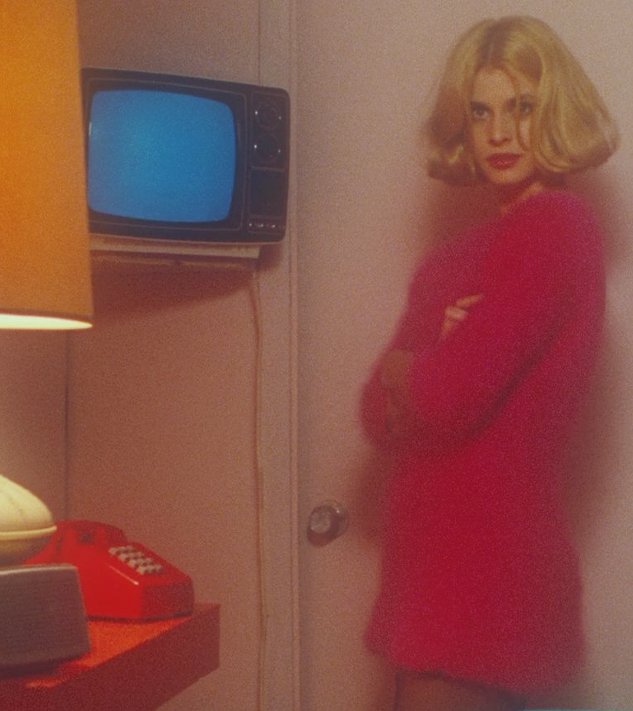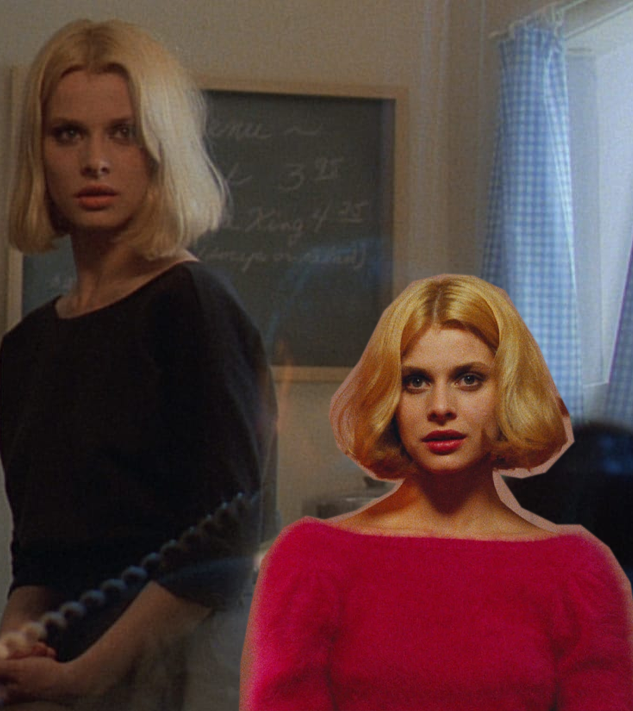“I once knew these two people”: Paris, Texas and Reinterpreting the Aftermath of Trauma on its 40th Anniversary
Words: Hannah Gibson
Wim Wenders’ 1984 road film Paris, Texas never reaches its destination. At the beginning of the film, we meet Travis Henderson (Harry Dean Stanton) as he stumbles, trancelike, out of the Texan desert wearing a red baseball cap. He is searching for a place to land, yet this place exists only as a crumpled photograph folded up in its pocket. From the Tumblr gifsets of Nastassja Kinski’s pink sweater to being used by Beyoncé in her latest teaser for her upcoming album Act ii, Paris, Texas remains visually striking and present in the public consciousness 40 years after its release.
Pulling from the dual spheres of American and European filmmaking, Wenders’ leans into the oxymoron of Paris, Texas as the place of beginning for Travis. “Did you ever go to Paris?” he asks his brother Walt (Dean Stockwell) cryptically, pointing to a map of Texas, “Can we go now?”. We quickly learn that Travis has been missing for four years following the breakdown of his marriage. Much like the myth of Odysseus, whose will return is in active conflict with his wandering, Travis struggles to be pulled away from his horizon. It is only at the mention of his son Hunter (Hunter Carson) that Walt can begin to tether Travis back into the life he left behind.
In the final fifteen minutes of the film we, as an audience, are finally made privy to the events that predate this wandering. Travis, now reunited with his son, has tracked down his estranged wife Jane at her workplace in a peep show. Behind one way glass and under fluorescent lights in a window dressing replicating a coffee show, she listens as Travis turns his back and begins his narration of their life together and how it fell apart; “I once knew these people, these two people.”
Paris, Texas is a strange but linear film which runs a snaking line of plot between Texas, L.A. and back again. The film is marked by its wide-open spaces, both in the vibrantly colour shots by cinematographer Robby Muller and in the moments of silence and misunderstanding between characters in Sam Shepard’s script. It is in these spaces that so much interpretation about this film lives.
Distance and miscommunication is a key motif in Paris, Texas, alongside dreams and memory. As an audience we are following behind Travis, but we are not allowed into his internal world until those final 15 minutes. Much of the important conversations between characters are had in phone booths, via walkie-talkie, across a measure of road or through a pane of glass. With so much quiet, it is easy for the viewer to pin the intentions of Travis’ actions onto him. Scrolling through some of the Letterboxd reviews of this film, it is clear that many viewers dislike Travis, describing him as a miserable, selfish man who wants to enforce his misery on others. One user even lists Travis’ sins saying he kidnaps his son, retraumatises his abused wife and forces her back into motherhood by the end of the film.
Whilst this list is not technically factually incorrect, it is compelling how taken out of context they read as something completely different to how the film holds them. As Susan Sontag wrote in her seminal essay Against Interpretation, “[when] directed to art, interpretation means plucking a set of elements (the X, the Y, the Z, and so forth) from the whole work. The task of interpretation is virtually one of translation.” I am not writing here to defend Travis’ actions, but rather, to explore how Paris, Texas might be both presenting, and in turn, viewing them. Travis’ emergence from the desert is at once a reality and a metaphor. It is a powerful image that relates both to myths and Biblical images of promise and deliverance. Everything that we experience in the film is an aftermath to what happened four years previously. With this line of thinking, we can begin to examine Travis’ journey through a transformative justice lens.
“Harm does not exist in this film the same way as it does in life. In fact, the film creates an entirely alternate reality where the consequences of abuse and abandonment can be explored in a new way.”
Transformative justice practices recognise oppression is the root of all harm and therefore individual acts of harm have collective origins. Where Wenders’ shows a desert, we can just as easily imagine a prison as an anonymising place where dwellers are denied selfhood and connection. In either case, we understand that when Travis emerges, he has 'done time'. Early in the film we see Travis walking past a man yelling on the street. As he passes him, Travis acknowledges him with a nod and a tender touch on his shoulder. It is unclear if this act of physical touch is an attempt to comfort the man or Travis himself. Travis cannot undo the harm he caused in the past. His struggle now as he is pulled back into the life he left behind is learning how to tread along fracture lines that were beginning to heal in his absence.
Travis’ reconnection with Hunter is respectful as Travis gives Hunter the space of personhood as he tries to remember how to be a father. In a particularly poignant scene, Travis walks home with Hunter from school, on the parallel side of the road. It is not until Hunter indicates to Travis that he is comfortable with his father that Travis crosses the road to walk beside him.
Travis’ reticence allows Hunter to voice his thoughts and feelings readily. After they leave L.A. to search for Jane, Travis makes it clear that Hunter’s leaving does not have to be final; “You can go back to them anytime you want. Just tell me, all right? Just in case you change your mind.”
Much of their relationship is one of almost role reversal, where 8-year-old Hunter is calling the shots as Travis reacclimatises to family life. In Wes Anderson’s 2012 audio commentary of his film The Royal Tenenbaums, he cited Paris, Texas as one of the influences he drew on for the film. Whilst Anderson’s film is more heightened in its stylisation, one of the key characteristics of The Royal Tenenbaums is how the adults in the film act like children and the children act like adults.
Likewise, within Paris, Texas, it is the adults who struggle to hold duality. Whilst Walt and Ann’s marriage breaks down as Travis connects with Hunter, Hunter does not struggle with the issue of multiple parentage. As he says to a classmate, “They’re both brothers. No. Both fathers. My fathers. [I’m] just lucky I guess.” Hunter is liberated from the nuclear family structure whilst the adults in his life remain tangled in it.
Many aspects of Paris, Texas feel dream-like; from the vivid colour palette, which at times almost bleeds across the screen, to Travis’ relatively easy rekindling of the relationship with Hunter, to a peep show where the workers spend more time sitting around than doing anything else. To pull from Sontag again, “interpretation takes the sensory experience of the work of art for granted, and proceeds from there.”
Harm does not exist in this film the same way as it does in life. In fact, the film creates an entirely alternate reality where the consequences of abuse and abandonment can be explored in a new way. Both Travis and Jane get to say what they need to say to the other to make peace with their past. However, much like Odysseus who returns home to discover it is not the home from his memory, Travis also painfully recognises that his home with Hunter and Jane, destroyed by him, can only be fixed by him. From the parking lot outside a hotel window, Travis is bathed in green light as he watches mother and son reunite. This is his redemption.


